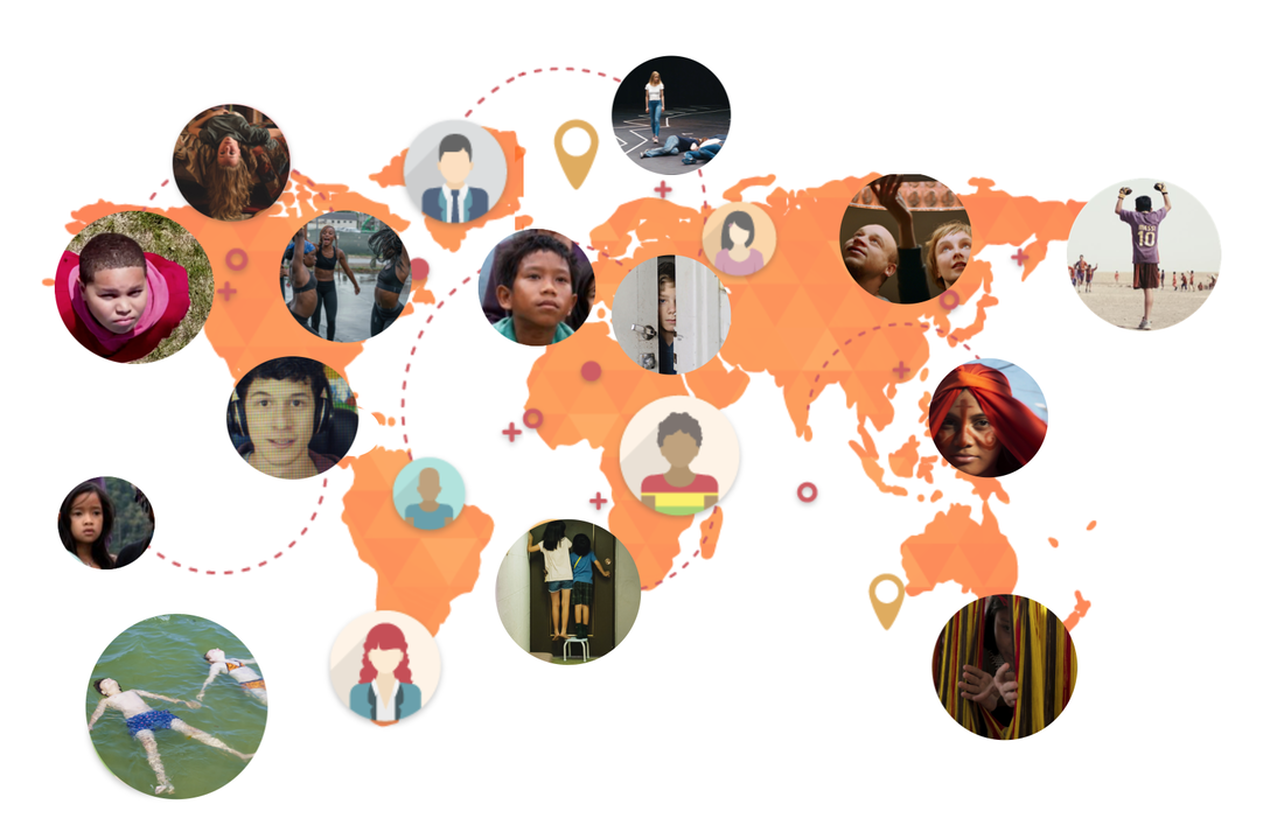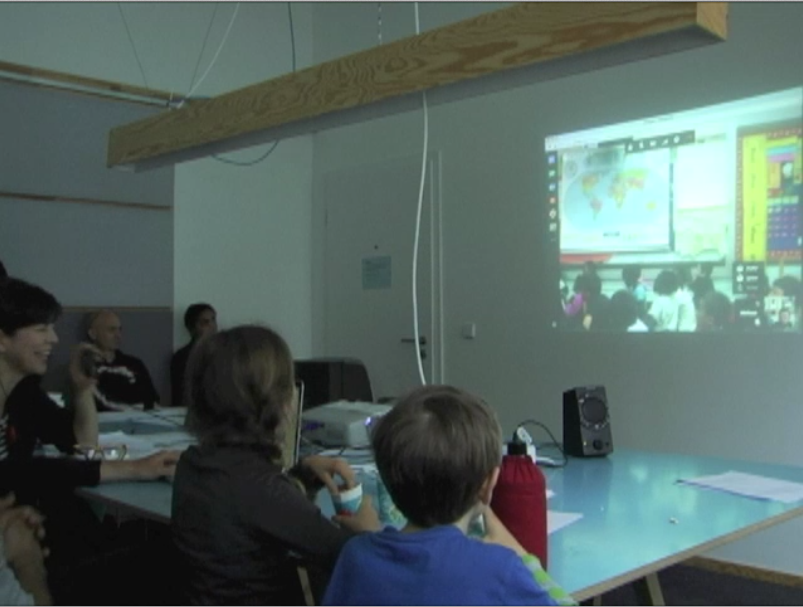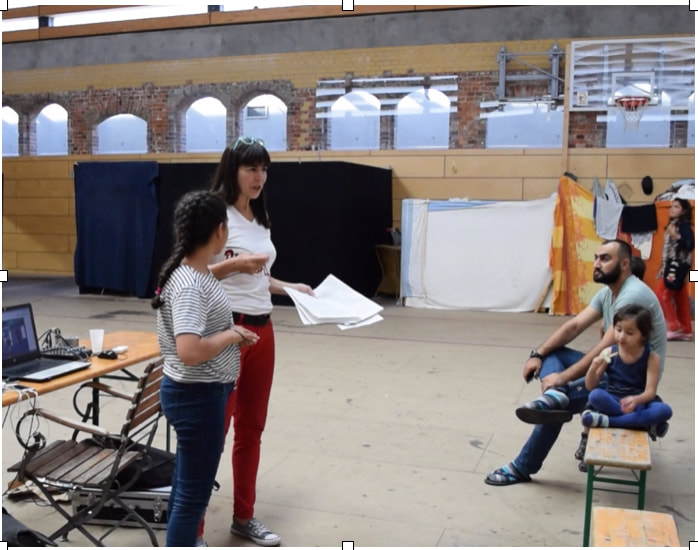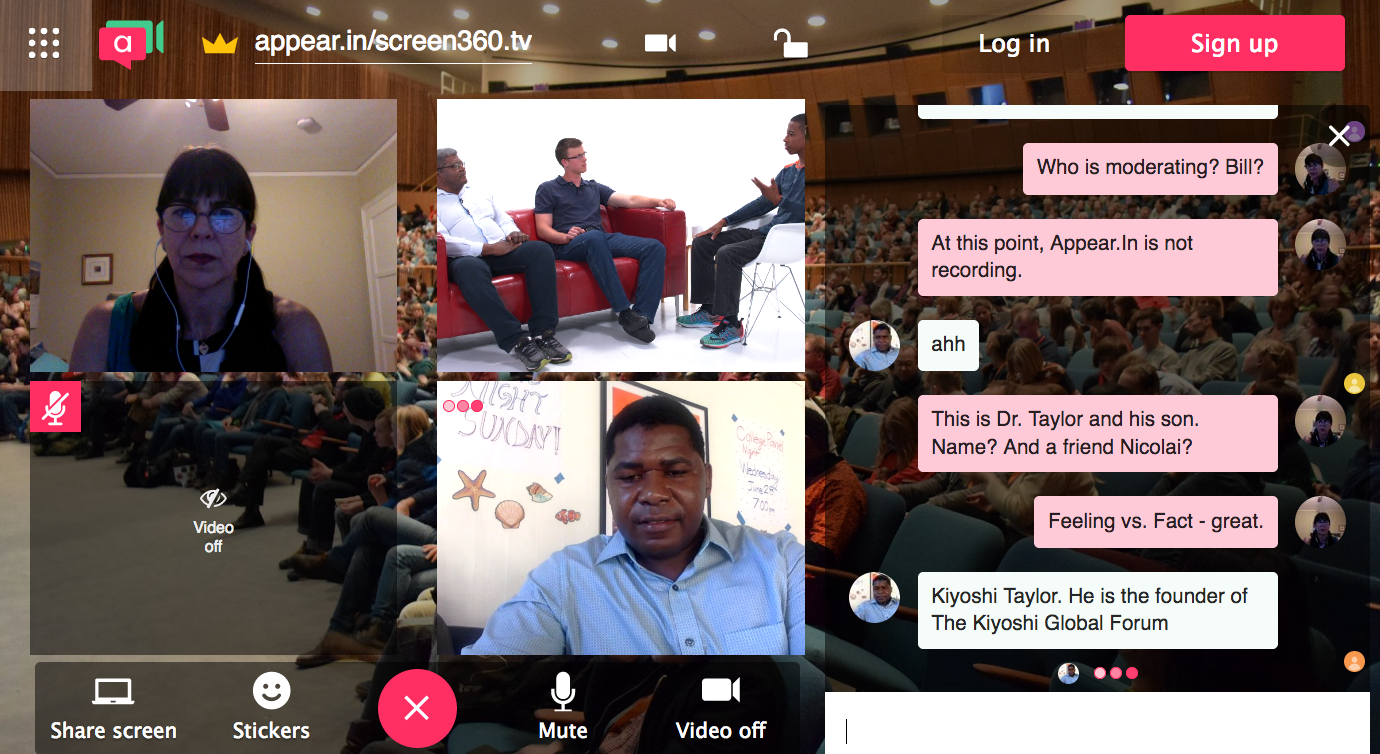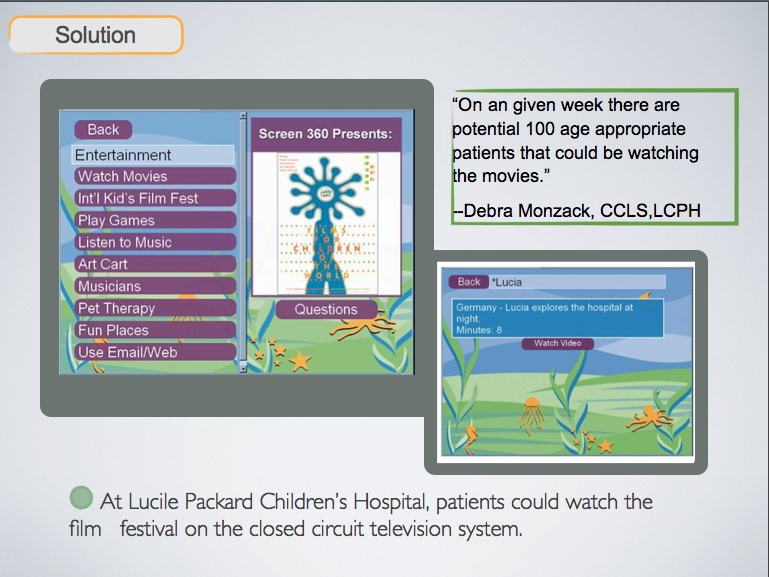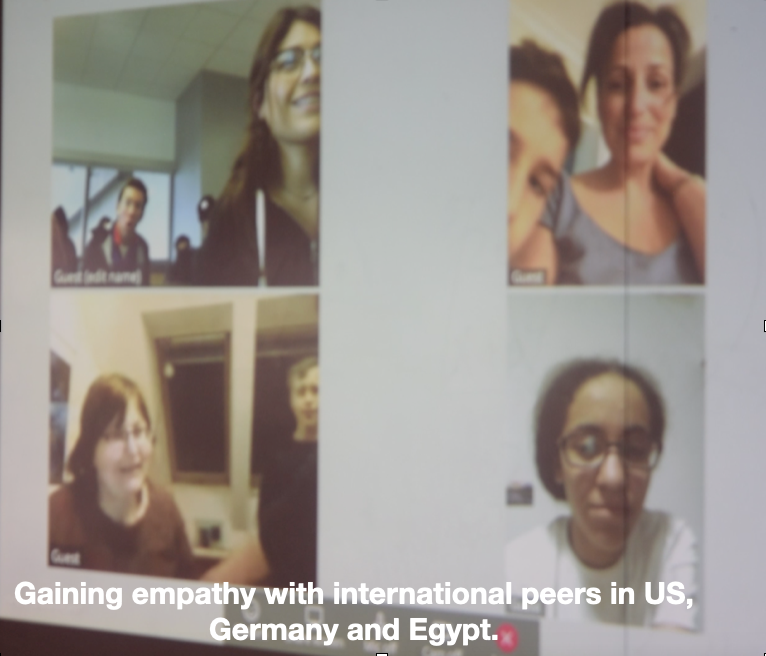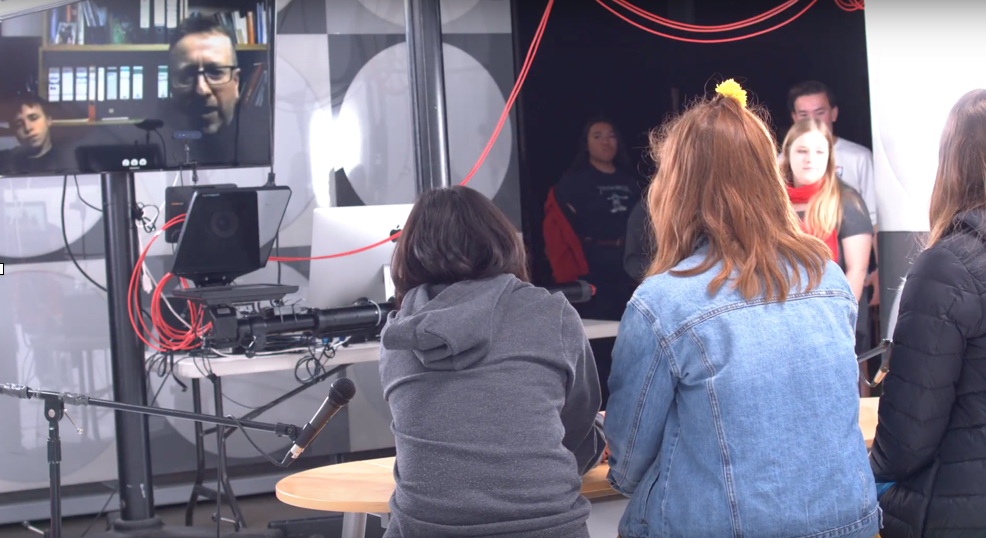“Children are curious about other children in the world
and want to know what they are doing.”
~ Ulla Hjorth-Nielson, The Danish Film Institute (Denmark)
and want to know what they are doing.”
~ Ulla Hjorth-Nielson, The Danish Film Institute (Denmark)
Screen360.tv is a way of learning with film that is easy to access,
COVID safe, and internet secure.
We offer immersive cross-cultural opportunities to exercise empathy with international peers, near and far.
Screen360.TV has been awarded a U.S. National Science Foundation (NSF) Small Business Innovation Research (SBIR) grant in the area of Learning and Cognitive Technology. The Stanford Peace Innovation Institute has recognized Screen360 as a *Positive Peace Technology.*
What current research tells us about foreign films as cornerstone memories
“The idea of cornerstone memories of films, which influence the life course,
is very intriguing and promising.”
~ David Pillemer, PhD, author of Momentous Events, Vivid Memories (Harvard Press, 2002)
Research has played a crucial role in the evolution of Screen360.tv as a distance-learning platform. Its approach and educational benefits have been studied in conjunction with the Berlin Film Festival and the Learning Design & Technology program of Stanford University.
Films provide Cognitive Impact
“Each of our perceptual, cognitive, and emotional capabilities is build upon the scaffolding provided by early life experiences.”
— Fox, Levitt, Nelson; Child Development (2010)
Films support Memorable Learning
“Vivid memories of personal experiences provide models for present activities and contribute to successful problem solving and adaptation. The memories serve important directive functions: they inform, guide, motivate, and inspire.”
— David Pillemer; Directive functions of autobiographical memory: The guiding power of the specific episode, Memory, 11:2, 193-202 (2003)
Grounded in cognitive development research and interviews with leading researchers in the field, The Finding Felix Project or The Impact of International Film on Childhood Autobiographical Memory, is Screen360’s partner project. The final interview from our research best illustrates the potential of this experience. Tested between the USA and EU, Screen360.tv’s ecosystem serves:
Films provide Cognitive Impact
“Each of our perceptual, cognitive, and emotional capabilities is build upon the scaffolding provided by early life experiences.”
— Fox, Levitt, Nelson; Child Development (2010)
Films support Memorable Learning
“Vivid memories of personal experiences provide models for present activities and contribute to successful problem solving and adaptation. The memories serve important directive functions: they inform, guide, motivate, and inspire.”
— David Pillemer; Directive functions of autobiographical memory: The guiding power of the specific episode, Memory, 11:2, 193-202 (2003)
Grounded in cognitive development research and interviews with leading researchers in the field, The Finding Felix Project or The Impact of International Film on Childhood Autobiographical Memory, is Screen360’s partner project. The final interview from our research best illustrates the potential of this experience. Tested between the USA and EU, Screen360.tv’s ecosystem serves:
- K–12 education
- Film education and development
“When my student spoke Farsi with the film’s director, the entire class lit up! They were thrilled! The rest of the morning was a lesson about Iran.”
~ Melissa Barry-Hansen, Teacher, Oakland USD (USA)
How do we choose our films?
Films are curated to serve school curricula (IB, AP, Common Core). Learning goals targeting Empathy, Language, Geography, Aesthetics and Discernment are addressed in discussion and post-film analysis. The post-film inquiry along with the “Re-Collector” further extend the vivid learning experience and provide data points for assessment along with further research.
Where do our films come from?
Founder Catherine (Katy) Kavanaugh is lead curator. Each year, she attends Generation, the revered and most replicated children & youth section of the Berlin International Film Festival. She served on its 2001 International Jury, and the award juries for several notable festivals globally, and has cultivated a strong global collegial network. She fostered five festival programs for young audiences in the San Francisco Bay Area and transformed the festival model into Screen360.tv at Stanford Graduate School of Education and the Hasso Plattner Institute for Design, the d.School.
The entire Screen360 team contributes to the selection process, drawing upon our credentials as educators, filmmakers, scholars, and innovators. From our locations around the globe, we employ the curator’s practice to find films capable of leaving constructive vivid memories to learn from over time. Together, we have more than thirty years cumulative experience in Education, Cinema, Business and Design.
The entire Screen360 team contributes to the selection process, drawing upon our credentials as educators, filmmakers, scholars, and innovators. From our locations around the globe, we employ the curator’s practice to find films capable of leaving constructive vivid memories to learn from over time. Together, we have more than thirty years cumulative experience in Education, Cinema, Business and Design.
©Catherine M. Kavanaugh, 2021

